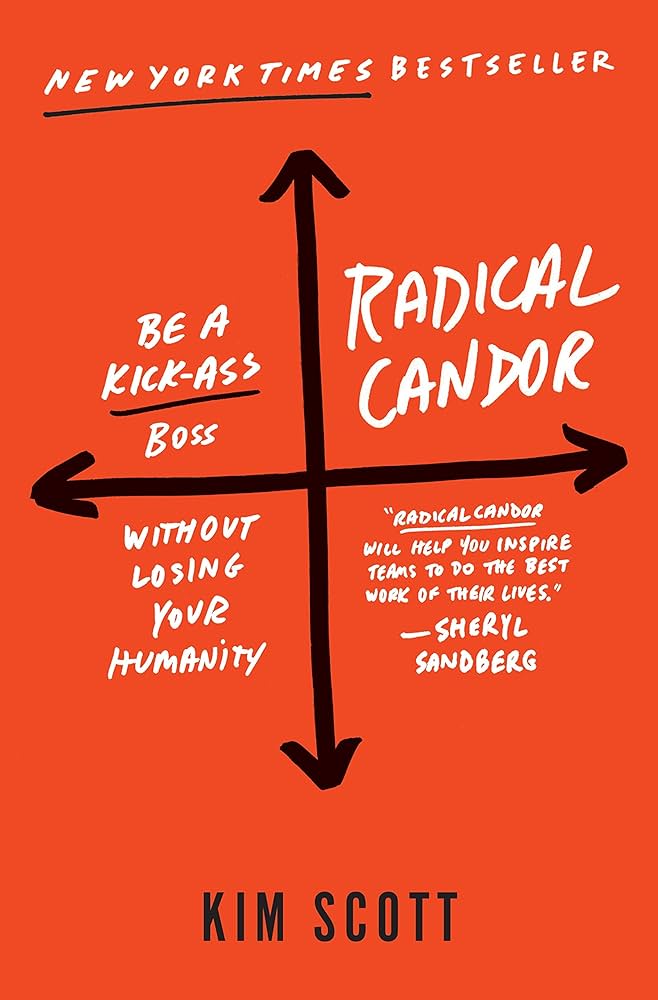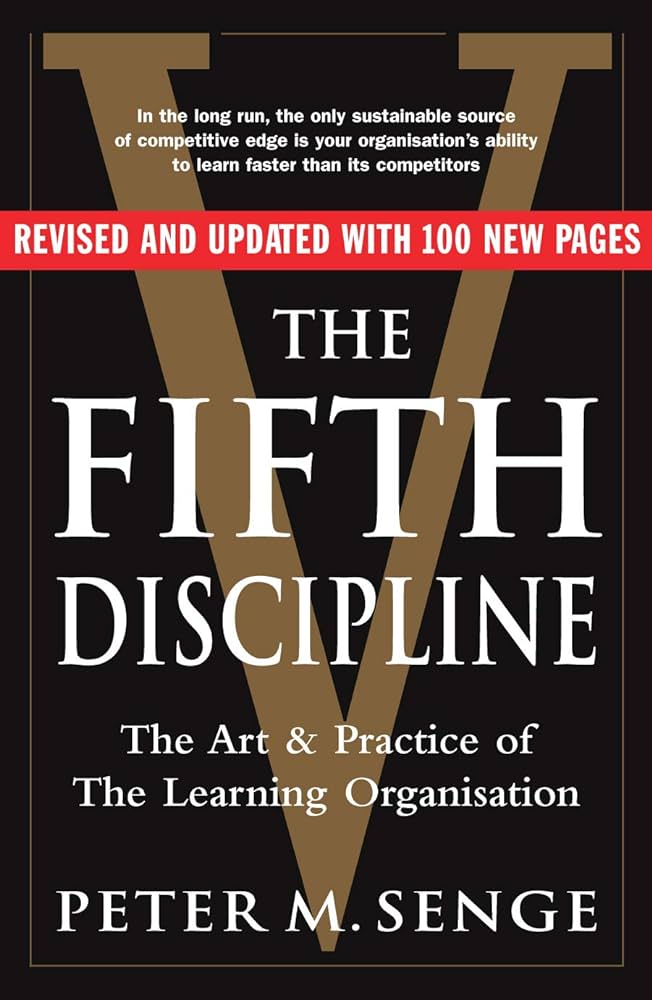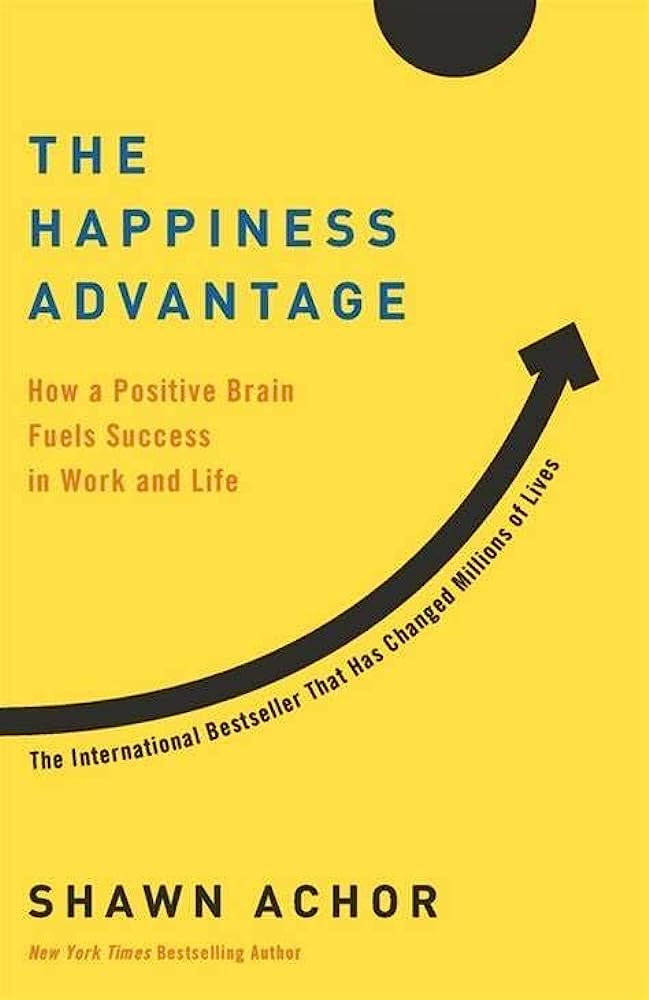Radical Candor: Be a Kickass Boss Without Losing Your Humanity
RATING


“Radical Candor” is written by Kim M. Scott – a businesswoman and a coach with vast experience, which includes leading AdSense, YouTube, and DoubleClick teams at Google. The book itself is devoted to the common types of behavior in the workplace, and how to utilize them – especially the namesake “Radical Candor” – to achieve the best results.
The author underlines the notion that it is the behavior that is important, much less the underlying character of a person. She insists that behavior can be adjusted, taught or changed for the better by virtually any person without truly compromising their character. This behavior is especially important for those she calls “bosses” – people in managing or positions of power – as it has the potential to influence most processes.
All in all, she divides the behavior of the bosses into 4 distinct types.
“Radical Candor” is the most desirable type of behavior that combines being able to challenge directly with deep care and sympathy for the employee. According to the author, the criticism given should be precise and focused on the work of the person – not themselves or their characteristics. Moreover, one shouldn’t rely on their relationship with the addressee, and especially should not wait for it to develop – instead, the criticism must be honest and timely with no regard to relationship status. Using this type, bosses can create a productive workplace, establish an atmosphere of honesty and blur the line between the management and the employees – which is, as many writers agree, currently one of the best types of corporate culture.
“Obnoxious Aggression” is the 2nd best option – much less desirable than Radical Candor, but still preferred to 2 other extremes. It is a very direct and rude (even aggressive) behavior that does not include any care for the workers – but still is effective for getting the job done.
The 3rd type of typical bosses’ behavior is “Manipulative Insincerity”, which is mostly passive participation without care for the employees and any direct challenges to them. This type of behavior is quite common and ‘easy’, as it is the least labor-intensive one. However, it is still quite dangerous, as it creates an insincere, unproductive, and fake atmosphere at the workplace.
The 4th and final variant is “Ruinous Empathy”, which consists of caring about people, but not being direct enough to truly challenge them. According to the author, this type of behavior is responsible for the vast majority of management mistakes. Companies where this variant is prevalent usually have a more pleasant work environment, but often fail to achieve goals in time, and have their development hindered.
Scott also devotes some of her time to HR management as well. Instead of the commonplace 9-quadrant division (from “low performance/low potential” to “high potential/high performance”), she divides quality employees into two types. “Rock stars” are solid employees who are comfortable where they are (or on a more gradual growth path), while “superstars” are those ambitious over-achievers who desire fast promotions and more responsibility. Other than that, she insists that the bar for performance should be raised for the middle-performance workers, while the underperformers must be fired if they fail to improve even after given them the Radical Candor treatment.
All in all, “Radical Candor” is easy and entertaining to read and requires no particular background to use and comprehend. Most importantly, the key methodological part of Scott’s thought – the 4 distinct types of behavior – is quite solid and easily applicable in a wide variety of business and personal situations. Using the Radical Candor approach, one can assert themselves as proactive and helpful boss, colleague, and person.
The book’s description of modern contemporary culture at top-performing companies such as Google and Apple is also very accurate — to no surprise, as the author was actively involved at both corporations.
While many of the concepts depicted in “Radical Candor” are intuitively understandable, Scott, in our opinion, relies too much on personal anecdotes and “common sense” approach – which constitute the vast majority of evidence and examples. We would have liked to see more proof from various sciences (such as economy, theory of management, and especially psychology), history, as well as from experience of other businesses. While the author uses examples from Apple and Google, they too line more with her personal experience at these companies, and not from outside observations.
Moreover, the book also focuses on the bigger picture, and does not go into enough details regarding more nuanced situations. For example – how to behave yourself, if your boss does not believe in employees challenging them? Such situations can be quite perilous, especially to those without significant positions of power within the organization.
Finally, while the advice given by the author can be quite useful for predominantly white-collar industries and companies (such as Google and Apple, which Scott uses so frequently for demonstration), it cannot be realistically applied in many other spheres — whether it be due to the need of more traditional hierarchy, reliance on low-skilled labor, or in less-developed markets.
From the time we learn to speak, we’re told that if you don’t have anything nice to say, don’t say anything at all. When you become a manager, it’s your job to say it and your obligation.
Author Kim Scott was an executive at Google and then at Apple, where she worked with a team to develop a class on how to be a good boss. She has earned growing fame in recent years with her vital new approach to effective management, Radical Candor.
Radical Candor is a simple idea: to be a good boss, you have to Care Personally at the same time that you Challenge Directly. When you challenge without caring it’s obnoxious aggression; when you care without challenging – it’s ruinous empathy. When you do neither it’s manipulative insincerity.
This simple framework can help you build better relationships at work, and fulfill your three key responsibilities as a leader: creating a culture of feedback (praise and criticism), building a cohesive team, and achieving results you’re all proud of.
Radical Candor offers a guide to those bewildered or exhausted by management, written for bosses and those who manage bosses. Taken from years of the author’s experience, and distilled clearly giving actionable lessons to the reader; it shows managers how to be successful while retaining their humanity, finding meaning in their job, and creating an environment where people both love their work and their colleagues.
The book is directed, by the author’s own confession, almost exclusively towards bosses and higher-ups. However, other managers and employees can benefit from this book and apply Scott’s methodology in their professional and personal lives. If you want to learn more about corporate culture at Google, check out our review of Laszlo Bock’s excellent “Work Rules!”.

“Radical Candor” is a book primarily focused on research and providing concrete frameworks for corporate culture adjustment and improvement. Additionally, albeit to a lesser extent, the book also provides some guidelines and examples on the implementation of this approach.
See content on this topic

Sales training for front line along with basic development and coaching principles for line management.
Understanding how leaders must evolve with relation to the evolution of business models, new management models, and the significant changes to the workforce with Digital Natives now making up more than 50% of the workforce globally.
Understand the theory and mechanics of developing and managing a customer-centric and experience-driven corporate culture that is consistent and stable and includes elements of Employee Experience (EX) and Employee Relationship Management (ERM).
Understanding the evolution of leadership styles, management models, organizational structures, performance measurement and guiding change in the evolution of business models from product-centric to customer-centric and even relationship-centric.
Understand how to manage both internal and external digital transformation while considering the landscape for digital business models and the effect on traditional business models. Understanding organizational readiness for transformation and the role of corporate culture in managing transformations.
The changes in consumer behavior, employee behavior, and the evolution of business models in the digital age cause significant difficulties and imperatives for leaders who must develop new skills and evolve their leadership styles to be effective in this fast changing, challenging, and competitive environment.




 Copy Link
Copy Link
 E-mail
E-mail
 LinkedIn
LinkedIn
 Facebook
Facebook
 Telegram
Telegram
 WhatsApp
WhatsApp
















 Go Back
Go Back
Leave a Reply
You must be logged in to post a comment.